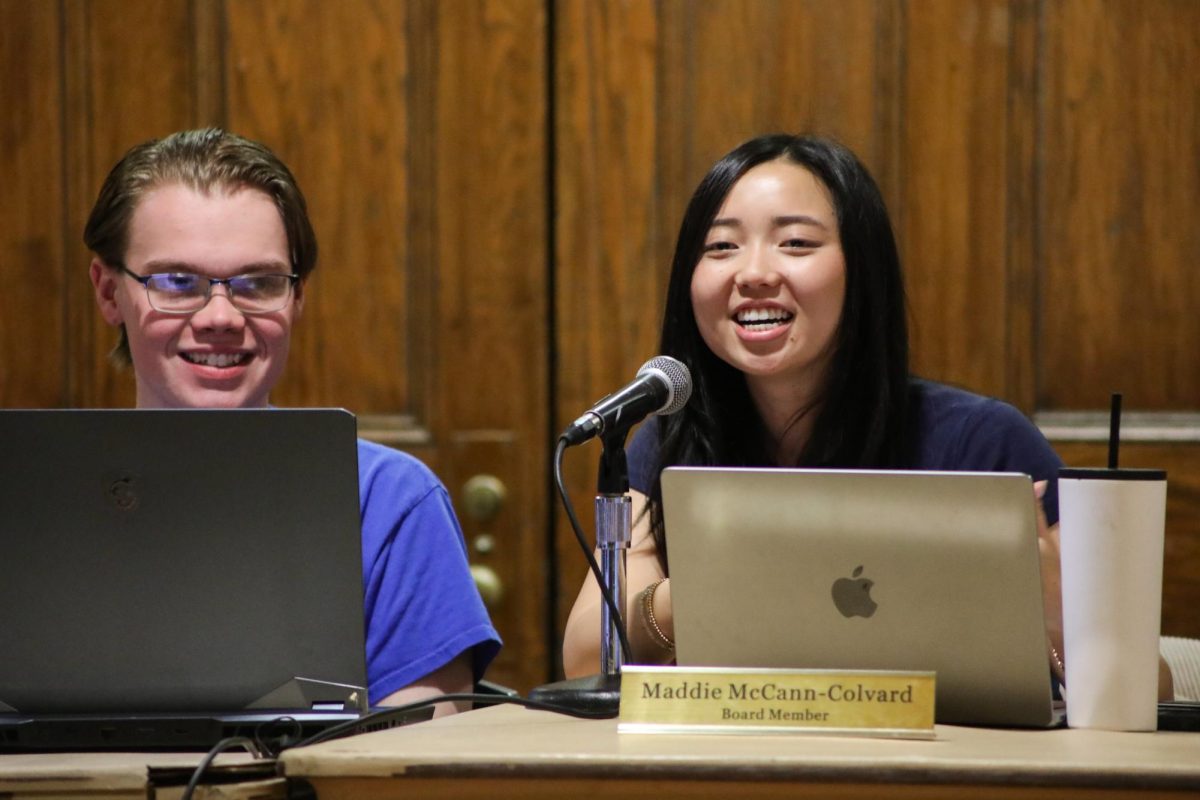Korman: Blogs, modern media born from tragedy
September 11, 2009
When the first plane hit the World Trade Center’s North Tower eight years ago today, I was… When the first plane hit the World Trade Center’s North Tower eight years ago today, I was playing Snake on a newly-christened Nokia beneath my desk in the back row of Mrs. Gentile’s English class at Intermediate School 25 in Queens. This was a particularly bold move at the time — getting caught with your cell phone in school warranted a one-day suspension, and, upon exhausting my lives, I wisely turned it off. We discussed the first act of “Romeo and Juliet” without fanfare.
As the events of the day transpired, we were actively kept unaware by faculty, who were instructed not to comment on the chaos transpiring 13 miles away so as to avoid disrupting education as usual.
This precaution proved futile, however. Over the course of the day, my eighth grade class of 35 dwindled down to 13, as parents pulled their children out of school for the day, one by one.
It wasn’t until eighth period that those of us remaining were briefed on why exactly 22 of us were M.I.A. — our biology teacher’s son worked in the South Tower, and she hadn’t heard from him all day.
She disclosed why she was emotionally in no shape to follow through with her lesson on Darwin’s finches. Then, her son called the classroom phone with less than 10 minutes left in the period.
Upon leaving the building, I powered up my new phone to find voicemails from both of my parents, eight hours after the first explosion. I knew that they were OK, and it wasn’t until I got home and tuned into CNN that the day’s events were paired with images and first-hand accounts.
In my case, the events of that day emerged slowly, especially by today’s standards.
My Nokia had been effectively incapacitated by The Man. But even if it hadn’t been, the model was primitive and Internet-less. In addition, my desktop dial-up connection was a hassle, making television my medium-du-jour.
For those not privy to the wonders of the Web in 2001, it might come as a surprise that the events of Sept. 11 were a historic moment in the evolution of the Internet. As people witnessed the attacks first-hand, they blogged about it — they posted descriptions, photos and reactions online.
In fact, many media scholars and professionals consider Sept. 11 to be the true birth of the blog and thus, also the constant stream of information that characterizes today’s digital landscape.
In his 2002 book, “Who Let the Blogs Out?” Twitter founder Biz Stone describes
how on Sept. 11, traditional media outlets failed to keep up with the “man-on-the-street” commentary being spewed out dynamically online. The event also jump-started a prolonged exponential increase in the total number of blogs and blog postings. They functioned as an outlet for the heightened political awareness spawned by the attacks.
The ripple effects of the blog boom are ubiquitous. The medium today serves as a checkpoint for the mainstream media, a means through which businesses improve public relations, governments communicate with constituents and virtual nobodies accumulate loyal followings. To boot, recent technological innovations have given the public handheld access to all this — since last Sept. 11, the Web has evolved from a largely computer-based medium into a mobile experience.
Today it’s all the more evident that Sept. 11 forever changed the way we experience breaking news and national tragedy.
When Japanese bombers hit Pearl Harbor, radio stations covered the event until newspapers hit stands the next day, introducing listeners to the first truly live news event. Following the assassination of JFK in 1963, all three major television networks, for the first time ever, canceled their regular programming and covered the tragedy continuously, for four days straight.
Sept. 11 passed the baton to the Internet, and today, it’s amid an explosion of hyperactivity. Blogs are emerging as a financially viable publishing platform. Political crises overseas are disseminated in 140-character vignettes, bypassing the ever-present media middleman.
First and foremost, today is a day of remembrance and reflection. Many lives were cut short, among them parents of my classmates, some of whom remained unaware of the attacks until eighth period.
Had today’s media landscape been in place back then, the story would likely have found its way to us far earlier — be it through one rogue student who kept his phone on or a Web-equipped computer lab, we’d have been able to share the moment with one another, understanding and empathizing in real time. And in Mrs. Gentile’s class, we wouldn’t have discussed Shakespeare — we’d have discussed history, as it was happening.
E-mail Ben at bek25@pitt.edu.


